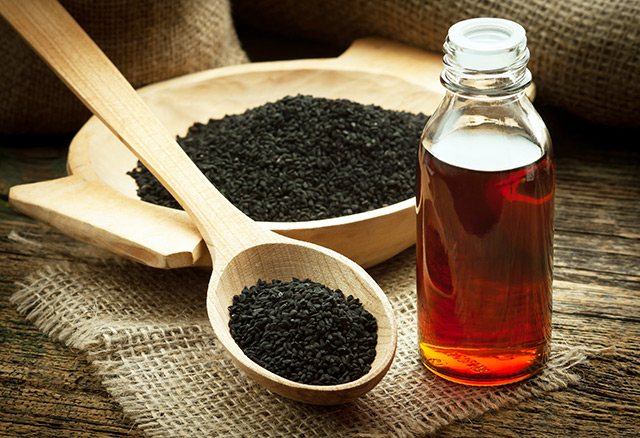Celery is a crunchy superfood that reverses metabolic syndrome
09/17/2020 / By Ramon Tomey

Metabolic syndrome refers to a group of risk factors for heart disease, diabetes and other chronic diseases. This includes abdominal obesity, or having an apple-shaped body; elevated levels of triglyceride, or excess calories that increase the risk of heart disease; low high-density lipoprotein levels, better known as “good” cholesterol; having high blood pressure and high fasting blood sugar levels.
Certain people are at risk of developing metabolic syndrome, including people with diabetes, women with polycystic ovarian syndrome (PCOS) and those taking prescription drugs that affect blood pressure, blood cholesterol and blood sugar levels. Having metabolic syndrome can increase your risk of developing Type 2 diabetes and can even lead to a heart attack or stroke. (Related: Exploring Metabolic Syndrome X.)
Fortunately, regular exercise and a diet rich in fruits and vegetables can prevent the onset of metabolic syndrome. Take celery, for instance: From its stalks to the leaves, and up to the seeds, celery is rich in beneficial compounds that fight metabolic syndrome, including its harmful effects in the body.
Here are just some of the ways celery can help keep metabolic syndrome at bay.
Celery has phytochemicals that decrease oxidative damage
Adding celery to your diet means that you also get compounds such as flavanols, beta-carotene and vitamin C, among others – all of which are potent antioxidants. As the cells process food and react to the environment, they produce waste substances called free radicals. If the body is unable to process and remove free radicals efficiently, it can lead to oxidative stress, which harms cells and causes disease. Antioxidants, such as those found in celery, help neutralize free radicals and boost overall health.
Celery can help lower blood pressure
High blood pressure, also referred to as hypertension, occurs when long-term pressure exerting the blood to the artery walls is high enough to cause health problems, such as heart disease. To address this, doctors often prescribe vasodilator drugs to open up blood vessels, allowing blood to flow more easily. However, these come with side effects, including heart palpitations, chest pain and rapid heartbeat.
A recent study published in the Natural Medicine Journal found that celery seed extracts contained 3-n-butylphthalide, a natural compound that had a similar effect as vasodilator drugs in opening up blood vessels.
Celery can help keep diabetes symptoms at bay
The Department of Agriculture lists celery as a dietary source of luteolin, a plant-based compound known for its anti-cancer, anti-inflammatory and antioxidant properties. Researchers from Kyungpook National University in South Korea demonstrated that luteolin can decrease insulin resistance and reduce obesity-related inflammation in vivo.
It’s easy to make celery a part of the daily diet because of its versatility. The vegetable’s crunchy green stalks can be mixed with soups, salads and savory dishes for a leafy, refreshing taste. Celery can also be juiced on its own, so the body can easily absorb the nutrients it contains, or it can also be juiced with other fruits and vegetables for a more powerful nutritional punch.
Celery seeds are used as a spice in certain cuisines. They are used to flavor different types of European sausages such as knackwurst and salami. In India, celery seeds are added to curries and chutneys for an extra kick.
Metabolic syndrome affects many people around the world, but it can be prevented early on with proper diet and regular exercise. By adding celery to your diet, the body gets all the nutrients, antioxidants and phytochemicals it needs to help keep metabolic syndrome at bay and prevent many serious diseases from developing.
Learn more about celery and other superfoods for your health and well-being at Superfoods.news.
Sources include:
ARS.USDA.gov [PDF]
Tagged Under: alternative medicine, Celery, disease treatment, fight obesity, food cures, food is medicine, functional food, heart health, metabolic syndrome, natural cures, natural medicine, phytonutrients, prevent diabetes, remedies, research
RECENT NEWS & ARTICLES
COPYRIGHT © 2017 NATURAL MEDICINE NEWS




















